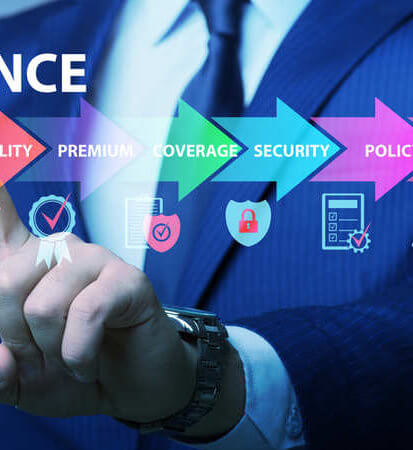Tips
Key Legal Steps for Business Expansion in France
Expanding a business into new territories can be a promising opportunity, but the legal landscape can be daunting. When expanding a business in France, it’s crucial to understand the legal requirements for success.
In France, entrepreneurs face a strong regulatory environment. They must handle company registration, taxation, and employment laws. This comprehensive guide will take a closer look at the key legal steps necessary for expanding your business in France.
Understanding the French Business Environment
France is famous for its diverse regional cultures. It also has strong infrastructure and great access to the European Union market. The country offers a great business environment for foreign investments.
However, navigating its complexities needs careful attention. France is one of the top ten countries for foreign direct investment (FDI). This makes it a great spot for international businesses.
In this competitive landscape, it’s crucial to familiarize yourself with various local laws and regulations that can impact your overall business strategy. Engaging local experts can mitigate risks and ensure compliance with French authorities.
Choosing the Right Business Structure
One of the first steps in expanding your business in France is selecting the appropriate business structure. Different structures come with varying legal obligations and benefits:
Societe a Responsabilite Limitee (SARL)
A Societe a Responsabilite Limitee, or SARL, is a type of limited liability company that is well-suited for small to medium-sized enterprises. This business structure protects owners from personal liability. This makes it a great choice for entrepreneurs who want to keep their personal assets safe from business risks.
A small retail store or a consulting firm with a few employees might choose a SARL. This helps protect the owners’ homes and savings if the business has debt or faces a lawsuit.
Societe Anonyme (SA)
In contrast, a Societe Anonyme, or SA, is more suitable for larger companies that require a minimum of seven shareholders. This business structure is often used by big corporations that need to raise capital from a large number of investors.
For example, a multinational corporation that wants to go public and list its shares on a stock exchange might choose to become an SA. This structure offers strong credibility and transparency. It’s subject to stricter rules and reporting needs.
Societe par Actions Simplifiee (SAS)
A Societe par Actions Simplifiee, or SAS, is flexible in governance. This makes it a popular choice for startups and fast-growing companies. This business setup offers the advantages of a limited liability company and the flexibility of a partnership.
For instance, a tech startup with a small team of founders might opt for a SAS to enable them to make quick decisions and adapt to changing market conditions. Unlike an SA, a SAS does not require a minimum number of shareholders, making it an attractive choice for small, agile companies.
Your choice should reflect your business size, the number of stakeholders, and regulatory requirements associated with each structure. Consulting with a legal expert can help identify the best fit for your expansion plans.
Registering Your Business
To successfully establish your business in France, consider the following crucial steps. First, select a business name that adheres to French regulations, ensuring it is unique and not already in use by another company. This will prevent potential legal issues down the line.
Next, prepare the necessary founding documents, including bylaws that outline the rules and procedures governing your company’s operations. Also, create an activity report that provides an overview of your business’s objectives, market analysis, and financial projections. These documents will serve as the foundation of your company’s legal identity.
A crucial step in establishing your business is opening a company bank account, where you will deposit the minimum required capital. This capital serves as proof of your business’s financial stability and commitment to operating in France. Make sure to choose a bank that caters to businesses and offers suitable services.
Once these steps are complete, submit your registration application to the Centre de Formalites des Entreprises (CFE), the French government agency responsible for handling business registrations. The CFE will review your application and ensure that all necessary documents are in order.
Finally, upon successful registration, you will receive your SIRET number, a unique identifier essential for tax purposes. Think of your SIRET number as your business’s social security number, allowing the French government to track your business’s activities and tax obligations. With these steps complete, your business will be officially recognized by the French government, and you can start operating legally in France.
Understanding the documentation and compliance requirements can streamline the registration process, making it faster and more efficient.
Navigating Taxation Laws
Tax obligations are a critical aspect of business expansion. France maintains a complex tax system, with the following main taxes:
Corporate Tax
In France, the standard corporate tax rate is set at 26.5% for most companies. However, there’s a catch – this rate can be reduced for businesses that demonstrate lower profitability. This means that smaller companies or startups with lower revenue may benefit from a lower tax rate, while larger corporations will pay the full 26.5%.
For instance, companies with a turnover below 7.6 million can enjoy a reduced corporate tax rate of 15%. This is a significant incentive for small businesses to establish themselves in France, as they’ll retain more of their hard-earned revenue.
Value Added Tax (VAT)
Value Added Tax, or VAT, is another key tax in France, standing at a standard rate of 20%. However, the VAT rate can vary greatly depending on the type of goods and services being sold. For example, essential items like food and medicine are subject to a reduced VAT rate of 5.5%, while luxury goods like jewelry and perfumes are taxed at a higher rate of 10%.
The varying VAT rates are designed to encourage the sale of essential products while deterring the sale of non-essential luxury items. This approach helps reduce social inequalities and promotes economic growth.
Personal Income Tax
Employers in France must consider personal income tax for their employees, as it’s a critical factor in determining their take-home pay. The personal income tax rate in France ranges from 11% to 45%, depending on the individual’s income level.
For instance, an employee earning 30,000 per year would fall into the 20% income tax bracket, while someone earning 100,000 per year would be taxed at the higher rate of 35%. Employers must withhold the necessary amount of income tax from their employees’ salaries and pay it to the French authorities on their behalf.
By understanding these tax rates, employers can better plan their finances and ensure they’re paying their employees a fair wage.
Understanding these taxes and actively incorporating them into your business plan is essential. Tax professionals can help navigate these obligations while optimizing your tax strategy.
Employment Regulations
Employing staff is one of the critical aspects of any business expansion. Understanding the legalities surrounding employing in France is vital to ensure smooth operations. Key areas include:
Labor Laws
In France, the labor laws are notoriously stringent, with specific regulations governing employment contracts, wages, and working conditions. For instance, the 35-hour workweek is a cornerstone of French labor law, and employers must adhere to it to avoid penalties.
Additionally, the laws surrounding the termination of employment contracts are complex, with severe restrictions on laying off employees. Understanding these intricacies is crucial to ensure compliance and avoid disputes.
Social Contributions
Employers in France are responsible for a wide range of social security contributions, including pension, healthcare, and unemployment benefits. To put this into perspective, if an employee earns 50,000 per year, the employer would need to contribute around 22,500 towards social security. It is essential for companies to factor these costs into their budget to avoid financial difficulties.
Work Permits
Foreign workers wanting to work in France usually need a work permit (Autorisation de Travail) first. This permit is typically sponsored by the employer, who must demonstrate that they cannot find a suitable candidate within the EU.
The application process can take several months. It needs a lot of documents, like proof of qualifications and language skills.
Failing to comply with labor regulations in France can have severe consequences, including penalties, fines, and operational roadblocks. Companies operating in France must consult local experts familiar with the current employment laws to ensure they are meeting their obligations and avoiding potential pitfalls. By doing so, they can minimize risks and maximize their chances of success in the French market.
Securing Necessary Permits and Licenses
Certain industries require specific permits and licenses. Depending on your business sector, you may need regulations covering food safety, health compliance, or environmental concerns.
Identify the laws and rules that govern your business sector to avoid costly penalties. For instance, if you’re in the food industry, familiarize yourself with health and safety regulations to ensure your products meet the required standards.
Before you start operating, secure all necessary permits to avoid shutdowns or fines. For example, a construction company must obtain a building permit before commencing a project to guarantee compliance with local zoning laws.
Stay up-to-date with changes to legislation that may impact your licenses or permits. Set up a system to monitor updates and revisions to relevant laws, such as subscribing to industry newsletters or following government agencies on social media. This proactive approach will help you anticipate and adapt to changes, maintaining your business’s compliance and reputation.
A proactive approach to license management can mitigate compliance-related issues and promote operational efficiency.
Intellectual Property Protection
Protecting your intellectual property (IP) rights is paramount to safeguarding your business interests in France. Key steps involve:
Trademark Registration
Safeguard your brand’s unique identity by registering your trademark in France or the European Union. This crucial step prevents others from using similar logos, names, or slogans that could confuse customers and dilute your brand’s value. For instance, the iconic French fashion brand, Chanel, has registered its interlocking CC logo to ensure that no other fashion house can use a similar design.
Patents
Innovators, inventors, and businesses can secure patents for their novel products or processes to prevent others from manufacturing, using, or selling them without permission. This protection is essential for companies like pharmaceutical giant Sanofi, which has patented its life-saving medications to prevent counterfeiters from producing fake drugs. By seeking a patent, you can reap the benefits of your innovation, including licensing opportunities and increased revenue.
Copyrights
Shield your original creations, including software, artistic works, and branding elements, from unauthorized use and distribution. Copyright protection empowers creators like authors, artists, and musicians to control how their work is used and distributed.
For example, the popular French novelist, Victor Hugo, copyrighted his literary masterpiece, Les Miserables, to prevent unauthorized adaptations and translations. By registering your copyrights, you can ensure that you receive fair compensation for your creative work and maintain control over its use.
Investing in IP protection ensures that your assets are safeguarded against infringement, ultimately preserving your company’s value.
Building Local Partnerships
Developing relationships with local businesses, government agencies, and trade organizations can significantly impact your expansion journey. Networking offers:
Market Insights
When you partner with local firms, you gain access to valuable intelligence on consumer behavior and market trends. Additionally, local partners can provide insight into the latest market developments, enabling you to stay ahead of the competition. By doing so, you can refine your marketing strategy to resonate with the local audience, increasing your chances of success.
Support Systems
Working with local groups provides strong support for logistics, rules, and local insights. Picture a trusted partner who can handle the tricky rules and regulations. This saves you both time and resources.
Credibility
Local partnerships can significantly enhance your credibility among potential customers and clients. Think of it as a vote of confidence from a trusted neighbor. When you partner with a reputable local firm, you inherit their reputation and establish a sense of trust with the local community.
Successfully Expanding Your Business in France
A successful business expansion in France requires diligence and attention to legal details. From selecting the right business structure to ensuring compliance with employment laws, each step plays a critical role in establishing your presence in this vibrant market.
Strengthening ties with local networks and protecting your assets will set a positive course for your business endeavors. Start your expansion on the right foot by carefully navigating the legal landscape.
For more helpful tips, check out the rest of our site today.




